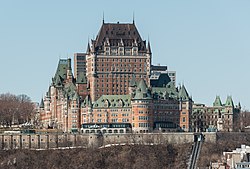Glasic Parliament: Difference between revisions
mNo edit summary |
mNo edit summary |
||
| Line 54: | Line 54: | ||
| house1 = Glasic Senate<br> | | house1 = Glasic Senate<br> | ||
| house2 = National<br> Assembly<br> | | house2 = National<br> Assembly<br> | ||
| structure1 = Glasic_Senate. | | structure1 = Glasic_Senate.png | ||
| structure1_res = 275px | | structure1_res = 275px | ||
| structure1_alt = Glasic Senate | | structure1_alt = Glasic Senate | ||
| structure2 = Glasic_National_Assembly_Diagram. | | structure2 = Glasic_National_Assembly_Diagram.png | ||
| structure2_res = 275px | | structure2_res = 275px | ||
| structure2_alt = National Assembly | | structure2_alt = National Assembly | ||
Revision as of 19:06, 14 January 2020
The Parliament of Tír Glas, more commonly known as the Glasic Parliament, is the supreme legislative body of Tír Glas, its Crown dependencies and overseas territories. It alone possesses legislative supremacy and thereby ultimate power over all other political bodies in Tír Glas and its territories. Its head is the Sovereign of Tír Glas (currently Queen Jane I) and its seat is Parliament House in the capital city of Avallone.
The parliament is bicameral, consisting of an upper house (the Glasic Senate) and a lower house (the National Assembly). The Sovereign forms the third component of the legislature (the Queen-in-Parliament). The Glasic Senate is an elected chamber with 145 Senators who are popularly elected under the single transferable vote system of proportional representation. The National Assembly is an elected chamber with elections to 545 single member constituencies held at least every five years under the Mixed-member proportional (MMP) representation system. The two Houses meet in separate chambers of Parliament House in Avallone. By constitutional convention, all government ministers, including the Prime Minister, are members of the Assembly or, less commonly, the Senate and are thereby accountable to their respective branches of the legislature. Most cabinet ministers (Secretaries of State) are from the Assembly, whilst junior ministers can be from either House. However, the Leader of the Senate must be a senator and is itself a cabinet position, usually combined with a paid position elsewhere.
The Parliament as it is now was formed in 1853 following the granting of 'responsible government' status by the United Kingdom of Anglia and Lechernt.
In theory, the supreme legislative power in Tír Glas is officially vested in the Crown-in-Parliament who still retains a constitutional veto power for use in extraordinary circumstances. However, in practice the Crown normally acts upon the advice given to them by the Prime Minister. The powers of the Glasic Senate are broadly limited to delaying legislation; thus the majority of power is de facto vested within the National Assembly. As a result of proportional representation, the Senate features a multitude of parties each vying for power. Unusually in recent history the Senate currently operates under a coalition majority between the Liberal and Labour paries


